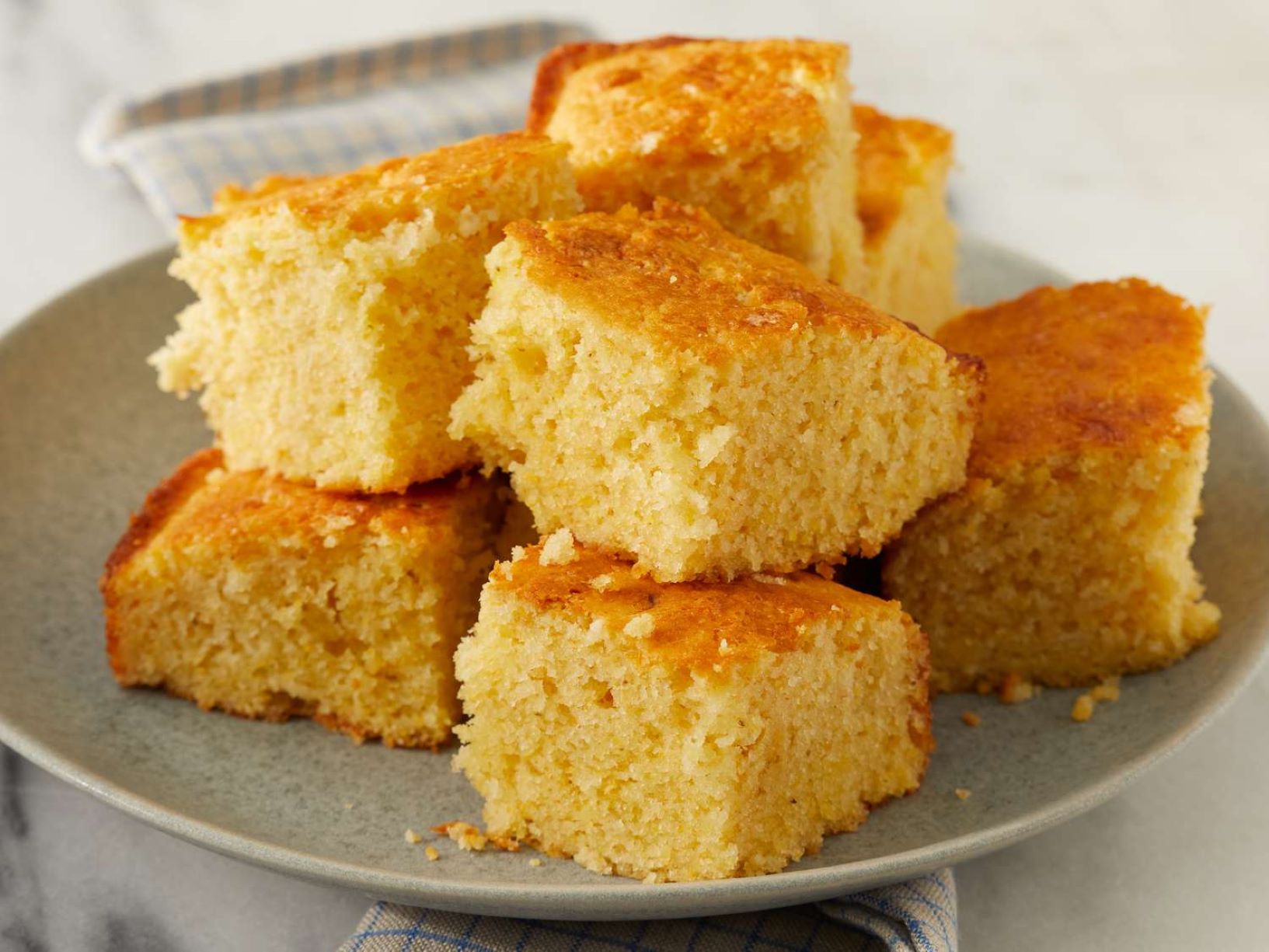
When it comes to comfort food, corn bread is a classic favorite that has been enjoyed for generations. With its rich, buttery flavor and crumbly texture, it’s no wonder that corn bread is a staple in many households. But aside from its delicious taste, corn bread also offers numerous nutritional benefits that make it a wholesome choice.
In this article, we will explore 15 corn bread nutrition facts that you may find surprising. From its high fiber content to its essential vitamins and minerals, corn bread proves to be more than just a tasty side dish. Whether you enjoy it with chili, as a breakfast treat, or as a standalone snack, learning about the nutritional value of corn bread will give you even more reasons to savor this beloved comfort food. So, let’s delve into the world of corn bread and discover its many health benefits!
Key Takeaways:
- Corn bread is a tasty, low-calorie treat packed with energy-boosting carbs and essential nutrients like protein and fiber. It’s a versatile, comforting dish that can be enjoyed as part of a balanced diet.
- Whether you’re a novice cook or a seasoned chef, corn bread is an easy and customizable recipe that pairs well with a variety of dishes. Its homemade goodness and satisfying qualities make it a delightful addition to any meal.
Calories: 190
Corn bread is a delicious treat that is relatively low in calories. A single serving of corn bread contains around 190 calories, making it a satisfying yet guilt-free choice.
Carbohydrates: 33g
Corn bread is a good source of carbohydrates, providing around 33 grams per serving. Carbohydrates are an essential source of energy for our bodies, making corn bread a great option for a quick boost.
Protein: 4g
While corn bread may not be the highest source of protein, it still contains around 4 grams per serving. Protein is essential for muscle repair and growth, making corn bread a tasty addition to your balanced diet.
Fiber: 2g
Corn bread contains about 2 grams of fiber per serving. Fiber helps regulate digestion and can contribute to a feeling of fullness, making corn bread a satisfying choice.
Fat: 8g
With around 8 grams of fat per serving, corn bread falls into the moderate range. It is important to be mindful of your overall fat intake, but enjoying a serving of corn bread in moderation can be part of a healthy diet.
Vitamins and Minerals
Corn bread offers a variety of vitamins and minerals, including vitamin B6, thiamin, magnesium, and iron. These nutrients play a crucial role in various bodily functions and support overall health.
Gluten-Free Option
For individuals with gluten sensitivities or celiac disease, corn bread can be a great alternative. By using gluten-free cornmeal, you can enjoy this tasty treat without the worry of digestive issues.
Versatile Recipe
Corn bread can be easily customized to suit your preferences. Whether you prefer it plain, sweetened with honey, or filled with savory additions like cheese or jalapenos, there are countless variations to explore.
Easy to Make
Even novice home cooks can whip up a batch of corn bread with ease. The ingredients are simple, and the preparation typically involves mixing everything together and baking it in the oven.
Pairing Possibilities
Corn bread pairs well with many dishes, from comforting chili to barbecued meats. Its slightly sweet and savory flavor makes it a versatile accompaniment to various meals.
Traditional Southern Dish
Corn bread has deep roots in Southern cuisine and is often associated with comfort food. It is a staple at many Southern gatherings and is enjoyed by people all over the world.
Freezable for Later
If you find yourself with leftover corn bread, don’t worry! It can be easily frozen and enjoyed at a later time. Simply wrap individual portions tightly and store them in the freezer for up to three months.
Quick and Filling Snack
Looking for a quick and satisfying snack? A slice of corn bread can do the trick. It provides energy and keeps hunger at bay, making it a convenient option when you’re on the go.
Comforting and Warming
There’s something inherently comforting about warm corn bread fresh out of the oven. Its aroma fills the kitchen, creating a cozy atmosphere and tantalizing your taste buds.
Homemade Goodness
Making corn bread from scratch allows you to control the ingredients and ensure the utmost freshness. Homemade corn bread is a delightful treat that can bring joy to both your kitchen and your dining table.
Conclusion
In conclusion, cornbread is not only a delicious and versatile food, but it also offers numerous health benefits. It is a rich source of essential nutrients, including fiber, protein, and vitamins A and B6. These nutrients contribute to improved digestion, enhanced immune function, and better cognitive health. Additionally, cornbread is a healthy alternative to regular bread as it is gluten-free and can be made with whole grain cornmeal for added nutritional value. Whether paired with a hearty chili, used as a stuffing for poultry, or simply enjoyed on its own, cornbread is a tasty and nutritious addition to any meal. So, the next time you indulge in this Southern classic, you can feel good knowing that you’re nourishing your body while satisfying your taste buds.
FAQs
1. Is cornbread gluten-free?
Yes, cornbread is naturally gluten-free. However, it’s important to check the ingredients used in the recipe to ensure there is no cross-contamination with gluten-containing ingredients.
2. Can cornbread be made with whole grain cornmeal?
Absolutely! Using whole grain cornmeal in your cornbread recipe adds more fiber and nutrients compared to using refined cornmeal. It’s a healthier choice and doesn’t compromise on taste.
3. Is cornbread high in calories?
The calorie content of cornbread can vary depending on the ingredients used and the portion size. However, compared to other bread options, cornbread tends to be denser and more filling, often resulting in a lower calorie intake overall.
4. Can cornbread be enjoyed by individuals with dietary restrictions?
Yes, cornbread is a versatile food that can be adapted to fit various dietary restrictions. It can be made gluten-free, dairy-free, and even vegan with the right substitutions and ingredients.
5. How can I store leftover cornbread?
To keep your cornbread fresh, store it in an airtight container at room temperature for up to two days. If you want to prolong its shelf life, you can also freeze it for up to three months.
Was this page helpful?
Our commitment to delivering trustworthy and engaging content is at the heart of what we do. Each fact on our site is contributed by real users like you, bringing a wealth of diverse insights and information. To ensure the highest standards of accuracy and reliability, our dedicated editors meticulously review each submission. This process guarantees that the facts we share are not only fascinating but also credible. Trust in our commitment to quality and authenticity as you explore and learn with us.


